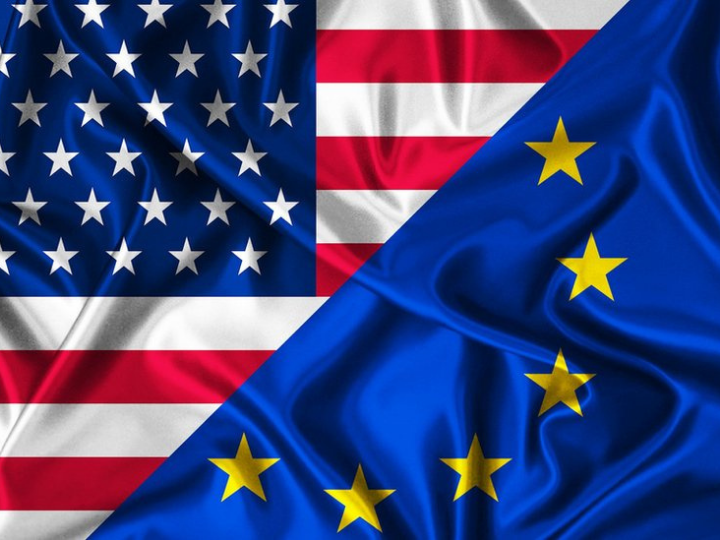by Nick Clegg*
Big Tech New internet legislation puts the EU at risk of falling behind the US and China. But together, the US and the EU can reach an international consensus.
European policymakers have proposed the most comprehensive internet legislation ever . That legislation is not only about the frameworks within which companies like Facebook can operate in the future, but also about the competitive position of European companies and the user experience that Europeans have when they use their phone or laptop.
Europe’s new ’Digital Services Act’ (DSA), Digital Markets Act (DMA) and the recently proposed AI regulation are a big deal for European companies and all companies operating here. Legislators think it could take a few years for the new sets of rules to be finalized. What happens in the next two years will determine the next twenty years.
And the EU is not the only region where new legislation is being worked on. Governments around the world are coming up with proposals on all kinds of topics – from privacy and content , to how data can be stored, shared and used. That is a positive development. Many of these topics are too important to be left to companies.
As policymakers come forward with bills, it is becoming increasingly clear that there are conflicting opinions about what the internet should look like. The EU is in favor of an open, universally accessible internet, in which security and respect for human rights are central. US President Biden has also called for a global alliance of "tech democracies" to protect those values. Together, the US and the EU can lay the groundwork for a broader international consensus. But we cannot take the open internet for granted
The Chinese model – separated from the rest of the internet and under strict supervision – poses a risk to the open internet as we know it. Other countries, including Vietnam, Russia and Turkey, already have moved towards the Chinese model.
The pressure for greater transparency and accountability that underlies many of the European legislative proposals is fundamentally a positive and welcome development. It makes sense to want to hold platforms more accountable for data reporting and auditing systems, rather than micromanaging individual content . It is also good that breaking certain rules can have consequences. Nor is it unreasonable to impose different, stricter obligations on larger platforms than on small start-ups.
When discussing and drafting legislation and regulations, policymakers must avoid two unintended consequences: unnecessarily hindering European innovation and further fragmentation of the worldwide internet.
Some of the fine print from the DMA suggests that policymakers could become deeply involved in product design. For example, there are detailed conditions about how users must log in to different apps. This can lead to the way products function becoming completely fixed, hindering technological progress. And proposals designed to prevent large companies from favoring themselves by using their own services to foreclose markets may be well-intentioned, but would benefit from a ’ consumer benefit ’ test to ensure that new entrants with better and cheaper services are not excluded.
Now that policymakers around the world are simultaneously looking for solutions, I hope they learn from each other and prevent them from building islands with their own legislation, especially islands that make that data transfer impossible across the border.
The simple and seamless transfer of data from one side of the world to the other is the heart of the internet. But recent EU court rulings have already cast doubt on that data transfer between the EU and the US. And conditions in the proposed legislation allow for local legislation in member states; legislation that undermines the value of harmonising rules in the EU. Protecting our economies, by allowing a free flow of data between the EU and the US, should be a priority on both sides of the Atlantic.
To protect one global internet, the more rules have been drawn up to complement each other at an international level, the better. It is essential that this topic continues to be discussed in the G7, in the Organisation for Economic Co-operation and Development (OECD) on digital taxation, in a newly proposed Transatlantic Trade Council and with other international authorities.
The best the EU can do to make its tech sector more competitive is still to create a single digital market. The great thing about this European project has always been that the whole is better than the sum of the individual parts.
A report from last year found that the EU has spawned more than a third of the world’s start-ups in the past decade, but only 14 percent of them are so-called "unicorns" worth $1 billion or more. Removing existing barriers within the EU would be better for the European economy than creating new barriers.
Europe has long been a pioneer in internet law, but lags behind China and the US when it comes to building global tech companies. As the EU drafts its most ambitious digital legislation yet, it faces a choice: it could fall behind the US and China for good, or it could create conditions that allow European tech companies to grow massively in the coming years.
*former UK Vice Prime Minister, is Vice President Global Affairs and Communication of Facebook
**first published in NRC Handelsblad, Amsterdam




 By: N. Peter Kramer
By: N. Peter Kramer
